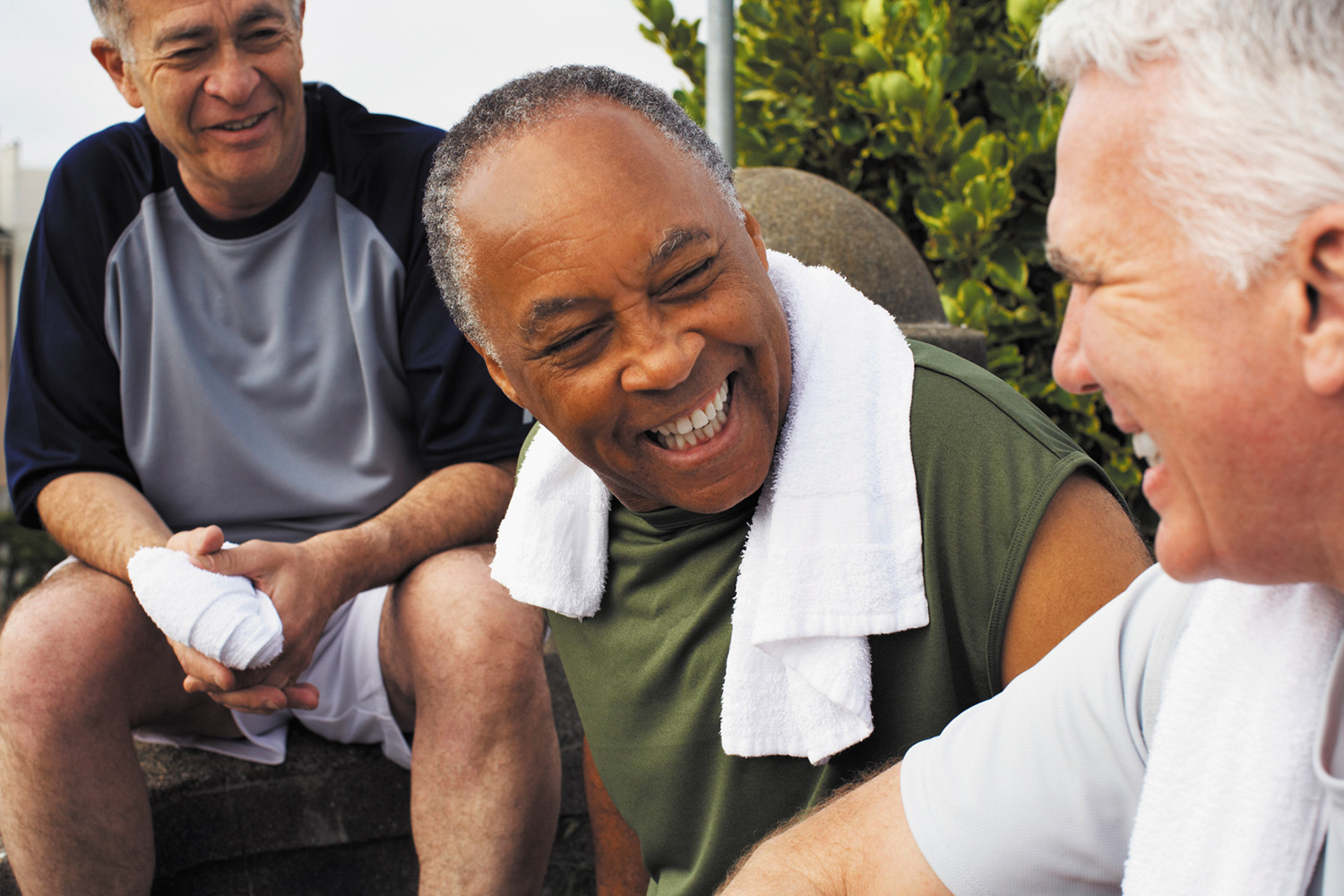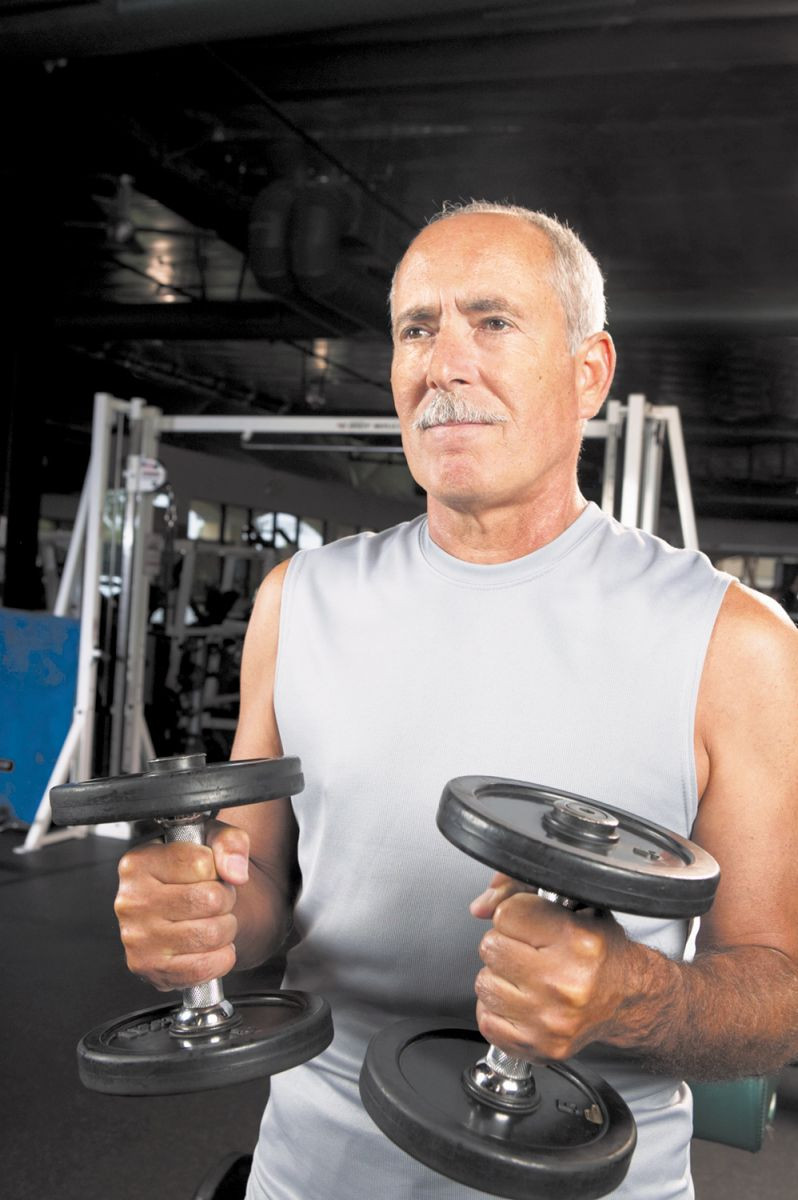
What are somatic workouts?

How to curb your stress eating

How to spot Parkinson’s disease symptoms

8 simple ways to reduce ultra-processed foods in your diet

Heart failure symptoms in women: How they’re different

GERD diet: Foods to avoid to reduce acid reflux

Strong is the new skinny

Everyday habits that sneakily weaken your bones

Don’t wait to get help for back pain

Correcting how you walk may ease osteoarthritis knee pain
Staying Healthy Archive
Articles
The health benefits and risks of pet ownership
They're cute, cuddly, and loving, but dogs and cats aren't always appropriate for older adults.
There's a reason dogs are dubbed man's best friend. Dogs—and cats, too—make wonderful companions and provide many emotional and physical benefits. "I'm a believer in the beneficial effects of having a pet, and I'm impressed with the ability of dogs in particular to form bonds with human beings. I think the science is starting to support their special ability to do that," says psychiatrist Dr. Greg Fricchione, director of the Harvard-affiliated Benson-Henry Institute for Mind Body Medicine. However, there are a number of considerations to mull over before adding a pet to your household.
Benefits
The most obvious benefits of pet ownership are love and companionship. "We do best medically and emotionally when we feel securely attached to another, because we're mammals and that's the way we've evolved," says Dr. Fricchione. He points out that we feel especially secure with dogs and cats because of the unconditional love they provide. "No matter what you do or say, your dog or cat accepts you and is attached to you," says Dr. Fricchione. Taking care of a dog or a cat can provide a sense of purpose and a feeling of validation when you wake up or come home and there's someone who's happy to see you.
Yoga for everyone
Chair yoga can help you boost balance, flexibility, mood, and overall strength.
You don't have to be steady on your feet to reap the rewards of yoga. There's a kind of yoga class tailored to people who need assistance with balance and stability. It's called chair yoga, because the yoga is performed while seated or while standing next to a chair for support. "It's especially good for people who can't get up and down off the floor, but really anyone is a candidate for the class as long as the person doesn't have an injury that would cause harm by movement," explains Laura Malloy, director of yoga at the Benson-Henry Institute for Mind Body Medicine, part of Harvard-affiliated Massachusetts General Hospital.
Yoga benefits
Yoga is a series of poses (called postures) and breathing techniques that include an element of meditation. The postures are beneficial in a number of ways. They help reduce muscular tension, build flexibility and strength, add bone strength, and improve balance.
Can everyday spices make you healthier?
Turmeric, coriander, and cumin may boost your health and breathe new life into tired dishes.
The health benefits of foods such as berries, broccoli, and salmon are well known. But your kitchen's spice rack may also hold some secret weapons against conditions such as inflammation, heart disease, cancer, and more. "Spices are underused, but it would be very easy to take advantage of them and improve health," says Dr. Lipi Roy, an internal medicine physician at Harvard-affiliated Massachusetts General Hospital.
There are few large randomized trials that demonstrate spices' health effects. But many studies in animals suggest that several spices offer benefits. So instead of flavoring your food with salt and butter, which can contribute to high blood pressure and heart disease, consider using the following spices.
A little help from your friends
Fostering strong social connections does not come easy for many men, but it is one of the best means to a longer and healthier life.
Social connections are as important to your health as proper diet and exercise. Research has linked social bonding to longer lives, lower incidence of depression and anxiety, and reduced risk of disease.
"Our brains and bodies function best when we are part of a community and maintain close, personal connections," says Dr. William S. Pollack, assistant clinical professor in the Department of Psychiatry at Harvard Medical School.
Passing your physical exam
The annual check-up is important for older men. Here is how to make the most out of your visit.
Men have a long reputation for avoiding check-ups, and that resistance tends not to soften when they are older.
"Many older men put off exams because they fear finding out something is wrong," says Dr. Suzanne Salamon, a geriatrician with Harvard-affiliated Beth Israel Deaconess Medical Center. "Also, many of today's baby boomers don't think they will have medical problems associated with age, so it can difficult for the 'younger older men,' like those in their 60s and early 70s, to see their doctor."
Preserve your muscle mass
Declining muscle mass is part of aging, but that does not mean you are helpless to stop it.
The saying goes there are two certainties in life: death and taxes. But men should also add loss of muscle mass to the list.
Age-related muscle loss, called sarcopenia, is a natural part of aging. After age 30, you begin to lose as much as 3% to 5% per decade. Most men will lose about 30% of their muscle mass during their lifetimes.
Heart attack survivors can have sex without fear
Sex does not appear to trigger a heart attack or increase your risk for a second one, suggests a study in the Sept. 21, 2015, issue of the Journal of the American College of Cardiology.
Experts looked at 536 heart attack survivors ages 30 to 70 and evaluated their sexual activity in the 12 months prior to their heart attack. Sexual activity was divided into three categories: less than once a month, less than once a week, and once or more per week.
Ask the doctors: How much fruit can I eat and stay within the sugar guidelines?
Ask the doctors
Q: I just read that we shouldn't be getting more than 10% of our calories from sugar. Should I cut back on fruit?
A: While it's a good idea to limit sugars from processed foods, you can worry less about eating too much fruit. In fact, one small study found no ill effects in people who ate 20 servings of fruit a day for 12 to 24 weeks.
Do you want a house call—from your insurance plan?
Medicare Advantage plans are offering home visits to healthy people who have their own doctors. Their purpose isn't clear.
For many of the 17 million people insured by a Medicare Advantage plan, the offer of a home visit may come as a surprise. (Medicare Advantage plans, which cover about a third of Medicare recipients, are offered by private companies approved by Medicare, and Medicare reimburses those companies for part of the care they pay for.) According to the Centers for Medicare & Medicaid Services, home visits are on the increase among people with these plans, and not just among the sick or housebound. Patients who are healthy and mobile are also being offered home visits, and millions have undergone them.
What are home visits?
The home visit—which typically lasts 45 minutes to one hour and includes a physical exam, health history, and lab tests—is conducted by a nurse practitioner or physician under contract to the insurance plan. The results are forwarded to the person's primary care provider for follow-up. The insurers stress that the home visits are not a substitute for an annual physical or recommended screening tests.
Happiness may not extend life
Although poor health can lead to unhappiness and a shorter life, unhappiness alone is not associated with a shorter life span, according to a recent report from the Million Woman Study. That investigation has followed hundreds of thousands of women throughout the United Kingdom beginning in 1996 and has tracked deaths among the participants.
In the third year of the study, the women were asked to rate their health, happiness, stress, feelings of control, and whether they felt relaxed. When the researchers looked at data from 720,000 women with a median age of 59, they found that 83% reported being generally happy and 17% said they were unhappy. During 10 years of follow-up, 4% of participants died. When the researchers factored out poor health, which was strongly associated with unhappiness, they found that the risk of dying was essentially the same for happy and unhappy women. The study was published online Dec. 6, 2015, by The Lancet.

What are somatic workouts?

How to curb your stress eating

How to spot Parkinson’s disease symptoms

8 simple ways to reduce ultra-processed foods in your diet

Heart failure symptoms in women: How they’re different

GERD diet: Foods to avoid to reduce acid reflux

Strong is the new skinny

Everyday habits that sneakily weaken your bones

Don’t wait to get help for back pain

Correcting how you walk may ease osteoarthritis knee pain
Free Healthbeat Signup
Get the latest in health news delivered to your inbox!
Sign Up










